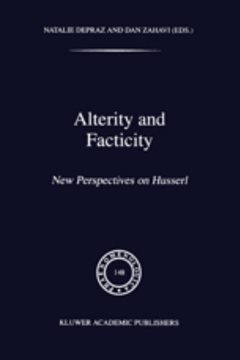Repository | Book | Chapter

(1998) Alterity and facticity, Dordrecht, Kluwer.
The present paper sets out to delineate the phenomena, scope and characteristics of a transcendental aesthetic and to place it within the context of the transcendental-phenomenological project, with the ultimate aim of offering an interpretation of the notion of the transcendental in Edmund Husserl’s phenomenology. I shall try first of all to show that the phenomenological problem of foundation has nothing to do with a self-conscious subject, without shadows, entirely transparent. The problem of foundation has rather to do with the elaboration of a phenomenology that deals with the subjectivity of the subject. This is another way of saying that in order to frame a theory of transcendental experience we need a transcendental aesthetic that is amenable to the analysis of primordial constitution, namely to the most fundamental structures that rule the life of consciousness as transcendental life.
Publication details
DOI: 10.1007/978-94-011-5064-4_1
Full citation:
Costa, V. (1998)., Transcendental aesthetic and the problem of transcendentality, in N. Depraz & D. Zahavi (eds.), Alterity and facticity, Dordrecht, Kluwer, pp. 9-28.



